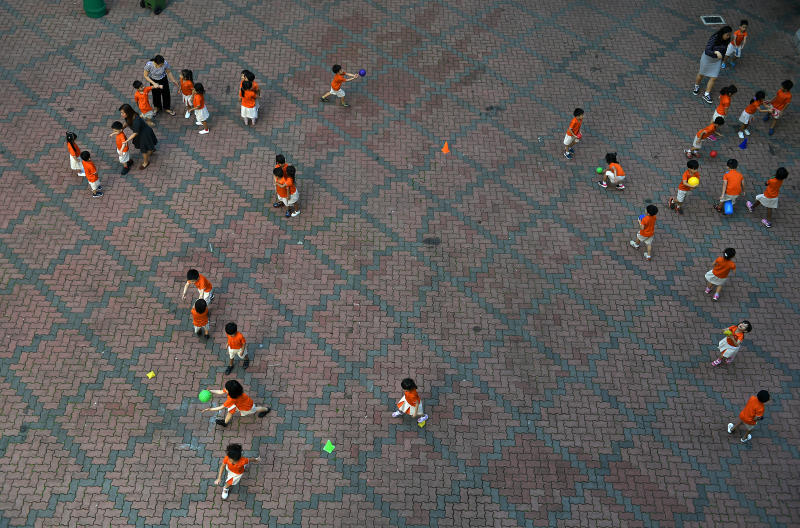Singapore Budget 2019: Levelling up children from disadvantaged homes
Sign up now: Get tips on how to help your child succeed

Some 30 per cent of places at the Education Ministry-run kindergartens are being set aside for children from disadvantaged socio-economic backgrounds.
ST PHOTO: KUA CHEE SIONG
SINGAPORE - The Government has done much in recent years to raise the quality of pre-schooling and make it more accessible to poor children. Childcare subsidies have been raised over the years to make quality care affordable for families.
About 30 per cent of places at the Education Ministry-run kindergartens are being set aside for children from disadvantaged socio-economic backgrounds.
Having access to high-quality pre-school education can change the equation for children who lack a stable, nurturing home environment. But, in addition to this, other forms of help such as counselling and educational therapy must be made available to these children and their families who are lagging behind.
Finance Minister Heng Swee Keat talked about the various ways in which the Government is doing more to better support children from disadvantaged backgrounds. It was heartening to hear that there are plans to intervene earlier, with new forms of proactive and targeted support.
As Mr Heng said, after-school care centres can play a big part in supporting poor children and their families.
Indeed, the problems faced by children who come from disadvantaged homes are complex and multifaceted, and to lift them up, we need to provide them help on many fronts.
Neurological research shows that traumatic experiences, such as being abused or even just witnessing a violent crime affects the brain development of children. Adverse experiences alter the chemical balance in children's brains, making it more difficult for them to concentrate and build trusting relationships - all essential for doing well in school.
The inter-agency task force, headed by Second Minister for Education Indranee Rajah called Uplift, short for Uplifting Pupils in Life and Inspiring Families Taskforce, will be looking at the results of KidStart, a pilot programme where various agencies work together to support and monitor the progress of low-income and vulnerable young children.
They should also study the encouraging results of schemes such as the Circle of Care programme, launched by Lien Foundation and Care Corner six years ago.
The programme, offered at 10 pre-schools and two primary schools, brings together teachers, social workers and education therapists, as well as medical doctors, to identify the root causes of a child's difficulties and provide help on different fronts. It has resulted in higher school attendance rates and improved reading and numeracy skills.
Parents must be part of this. The children most in need often come from homes where parents are busy making ends meet and beset by more urgent problems. Many of them are unaware that they can help.
Research shows that to be effective, programmes must supplement the parenting resources available to children and provide "scaffolding" for disadvantaged children by giving them the same sort of nurturing environments available to children in more advantaged families.
The intervention must start early. Various studies in the US and Britain show that early intervention - at the pre-school level and even earlier - produces more positive and lasting effects on children from disadvantaged families.
American economist James Heckman has shown that early intervention has a much greater economic and social impact than programmes run later in school systems, such as remedial schemes or lowering the teacher-student ratio.
The Nobel Prize-winning economist found that every dollar invested in high-quality early childhood programmes for disadvantaged children produces a 7 per cent to 10 per cent annual return on investment through increased productivity and lower social costs.
As research shows, we cannot stop at providing pre-school education or remedial lessons to the child alone.


